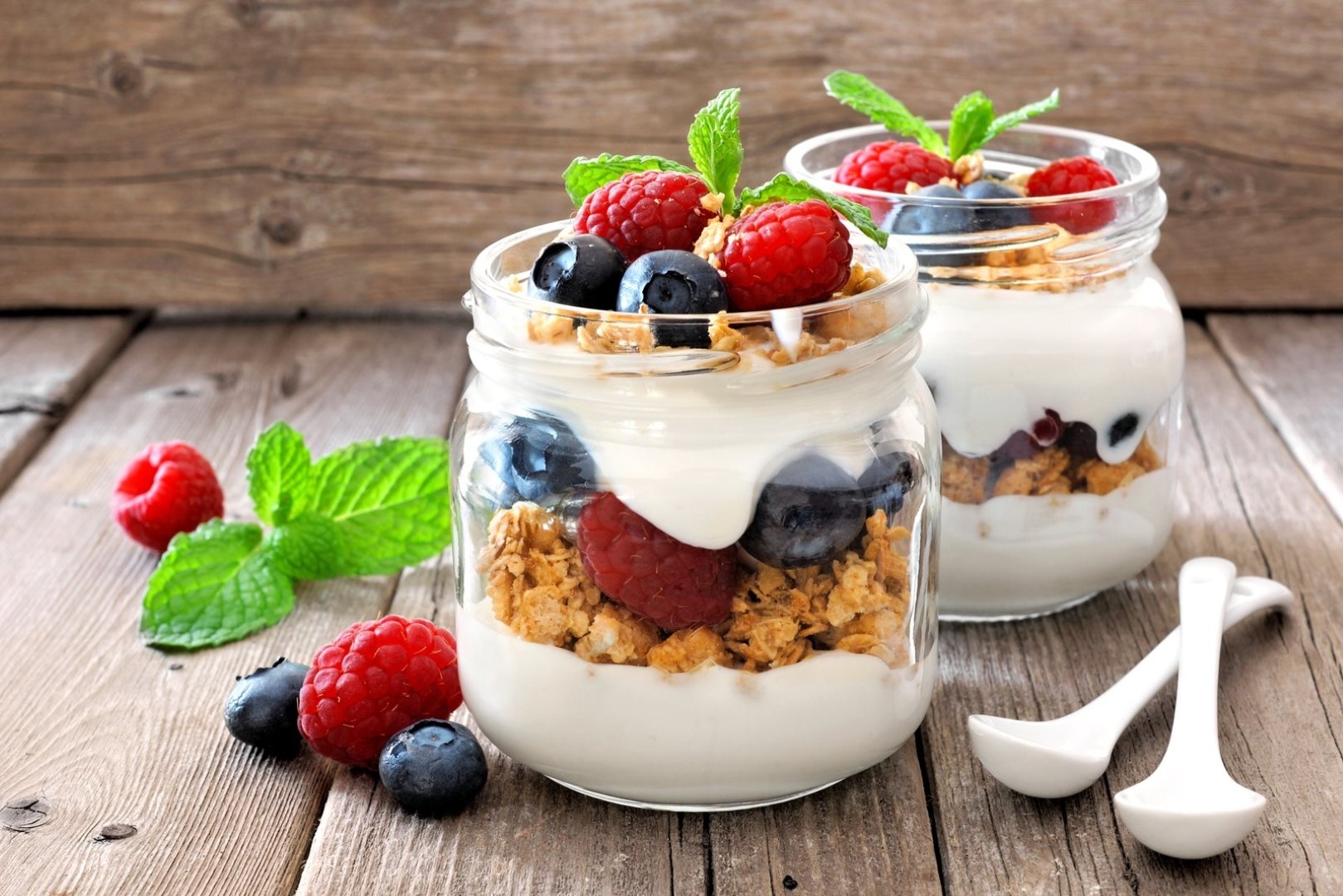
Dairy and your heart health
Not all dairy products are equal. Discover different types of dairy foods and their impact on heart health.
- Unflavoured milk, yoghurt and cheese can be a part of a heart-healthy diet.
- Reduced-fat milk, yoghurt and cheese are better options for people with heart disease or high cholesterol.
- Butter, cream and ice cream are not part of a heart-healthy diet.
- Unflavoured milk, yoghurt and cheese are ‘neutral’ for heart health.
The dairy food group includes milk, yoghurt and cheese, which can be good sources of calcium, protein, vitamins and minerals. However, they can also contain unhealthy fats such as saturated and ruminant trans fats.
Not all dairy products are equal in terms of the impact on heart health. It’s important to consider the types of dairy foods you eat and the impact they could have on your health.
Is dairy good for your heart?
Research into dairy has returned complex results. Overall milk, yoghurt and cheese have a ‘neutral’ effect on your heart health, meaning these foods don’t increase or decrease the risk of heart disease.
The complexity stems from the fact that dairy foods contain saturated and ruminant trans fats, which can increase LDL cholesterol. LDL cholesterol is commonly known as bad cholesterol, as it can increase the risk of heart disease.
However, the rise in cholesterol depends on the person and what type of dairy product is consumed.
The Heart Foundation recommends that milk, yoghurt and cheese can be eaten as part of a heart-healthy diet, but most of the fat in the diet should come from fish, nuts and seeds, and healthy oils.
Choosing unflavoured milk, yoghurt, and cheese also helps limit the amount of added sugar in your diet.
How many servings of dairy a day should you have?
As milk, yoghurt and cheese are considered ‘neutral’ for heart health, these foods can form part of a heart-healthy diet. However, you can also have a heart-healthy diet without them.
Research doesn’t indicate a minimum or maximum portion size or amount of servings. However, the Australian Dietary Guidelines recommend eating between 2-4 serves of milk, yoghurt and cheese a day to make sure you get enough calcium.
The following are example of serving sizes for milk, yoghurt and cheese:
- 1 cup milk
- 200 g (¾ cup) unflavoured yoghurt
- ½ cup of ricotta or cottage cheese
- 40 g (2 slices) of hard cheese.
Full-fat vs reduced-fat dairy
Some studies have shown that reduced-fat milk, yoghurt, and cheese are healthier; others show the full-fat options as healthier, and others again show no difference between the two.
The Heart Foundation recommends reduced-fat milk, yoghurt and cheese for people with heart disease or high cholesterol because the fat in dairy products can raise cholesterol levels more for these groups of people.
However, without enough evidence to say one is better than the other, healthy Australians can take their pick between full-fat or reduced-fat milk, yoghurt, and cheese products.
What about butter?
Research shows that butter raises both good and bad cholesterol, with the increase in bad cholesterol overshadowing the rise in good cholesterol. Butter affects people who already have high cholesterol by raising their levels even higher.
Without evidence to show that butter is good for heart health, The Heart Foundation recommends healthier options. The following make deliciously healthy substitutes:
- Olive oil
- Avocado
- Nut butters
- Spreads made with healthier oils, such as olive oil.
Is ice cream bad for your heart?
Ice cream, cream and dairy desserts are not part of a heart-healthy diet because they have more sugar and fat, and less protein, vitamins and minerals than other dairy foods.
The Heart Foundation recommends they should be eaten only sometimes and in small amounts.
What about dairy alternatives?
Eating dairy is a personal choice. Some people can’t have dairy foods because of allergies or intolerances. Some people choose not to for individual or health reasons.
Eating dairy isn’t essential to maintain a heart-healthy diet, but without it, other calcium-rich alternatives should be eaten.
The best option for dairy-alternative milk – such as soy, almond, oat or rice milk – is one with added calcium and no added sugar.
A variety of non-dairy foods contain calcium, such as:
- Fish with bones
- Almonds
- Tofu.
Healthy dairy food options
Examples of healthy dairy food options include:
- Eat unflavoured yoghurt, which can make a great snack or breakfast option. Add fruit or nuts and seeds for extra flavour.
- Swap butter for healthier alternatives, such as avocado, olive oil, or oil spreads.
- Try cottage or ricotta cheese on wholegrain crackers as a snack.
Dairy and a heart-healthy diet
A heart-healthy diet can include dairy, but it’s not essential. While unflavoured milk, yoghurt and cheese have been proven to be ‘neutral’ to heart health, reduced-fat options are the best choice for anyone with heart disease or high cholesterol.
Butter, cream and ice cream are not part of a heart-healthy diet and should only be eaten sometimes and in small amounts.
Last updated22 March 2024